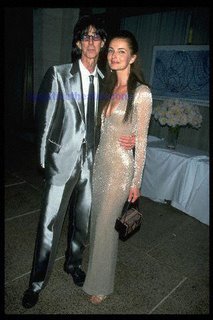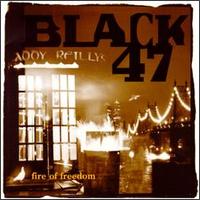
This is a NY Times Piece that appeared in the paper in 2004. It is very telling on what kind of a person Ocasek is and what people think of him as a producer.

IC OCASEK hasn't changed much since the mid-1980's, when his band, the Cars, was last a fixture on MTV. He remains rock-'n'-roll thin, his long legs still clad in dark stovepipe pants, and while the lines in his angular face are a little deeper, he continues to sport the same instantly recognizable shock of black hair. But during the last 20 years, as the Cars' elegantly sardonic take on commercial pop music has receded into the realm of VH1 specials and 100-best lists, Mr. Ocasek has slowly reinvented himself as a producer and mentor to musicians who are often half his age.
He has produced material for bands as wildly diverse as the geek-chic Weezer; the glamorous ska-influenced No Doubt; Courtney Love's punk-girl group, Hole; the proudly low-fidelity Guided by Voices; and now the raucous, gender-bending art-punkettes Le Tigre, who are releasing one of the most highly anticipated albums of the season, "This Island" (Strummer/Universal).
Rooted in the angrily feminist, musically innovative Riot Grrrl movement of the early 1990's, the New York-based group - Johanna Fateman, JD Samson and the former Bikini Kill singer Kathleen Hanna - built its reputation with high-energy live shows and two self-produced albums that combined catchy samples of 60's girl groups, strident guitars and radical gender politics. (Le Tigre's Web site states that "the music is not separate from our political ideas, and we really can't choose one or the other.") True to the do-it-yourself punk credo, the group had never worked with a producer, choosing instead to compose, record and arrange its CD's itself. But when the Le Tigre bandmates wanted to do something "crazy pop," as they put it, for a third album, they decided to call on professional help. Mr. Ocasek had met the group in 2003, during a stint as a vice president of Elektra, and the band admired Mr. Ocasek's "raw musical aesthetics," as Ms. Samson said, and his work with the smooth, radio-oriented No Doubt.
Mr. Ocasek ended up working on three tracks, with one, "Tell You Now," making it to Le Tigre's new album. (For the record, he had nothing to do with Le Tigre's raucous cover of the Pointer Sisters' early-80's hit "I'm So Excited.") He concentrated on making their songs more radio-friendly while preserving their homespun sound.
"It was really new for us to have so much appreciation for somebody else's opinion in the studio," Ms. Samson said, laughing. "He said that 'Tell You Now' didn't really have a chorus, so we had to figure out what the most catchy part was, flesh it out and piece it back in. We had never even thought of song structure before."
Told of Ms. Samson's remarks, the soft-spoken Mr. Ocasek let out a chuckle, and commented, "I told them that if you want to get something on the radio, people have to get knocked over the head with something they can sing along to. And if you never have a melody to follow. ...''
Producing began as a side venture for Mr. Ocasek. During the Cars' chief hit-making years, from 1978 to 1984, Mr. Ocasek left the hit-making to experts like Roy Thomas Baker, the Englishman responsible for Queen's "Bohemian Rhapsody." But at the same time Mr. Ocasek was quietly offering his services to others. "I started producing mostly out of love of being in the studio and also because I wanted bands to feel like they were going to get exactly what they wanted without anybody pushing them around," he said. (Today he often works out of a studio he set up in his house in Manhattan, near Gramercy Park.) Among the first musicians he worked with were the gonzo art-punks in the Fast and the intense, pioneering electronic duo Suicide.
Though the Suicide singer Alan Vega is known for his intense, haunted stage manner, he speaks about Mr. Ocasek (with whom he has also collaborated on the spoken-word CD "Getchertiktz'' in 1996) in reverent terms. "When I work with him, I know I'm in God's hands," he said. "I remember him working over and over again on backup vocals for a D Generation song I personally wasn't crazy about. So I got impatient and walked out. When I came back two hours later, it sounded amazing! He worked on those vocals until he nailed them."
Mr. Ocasek's low-key, "I used to be in your shoes'' approach seems to inspire trust in his bands. It also helps that he is usually hired by the band, not foisted on it by a record label, as some producers are. "All the bands I produce are real about their music: it's artful, it has integrity," he said. His acts range from the uncompromising hard-core Bad Brains to the quirky, literate Nada Surf and the Celtic rockers Black 47, and several have found huge, Cars-level success: he worked on Weezer's two self-titled albums, both platinum-selling, and co-produced a pair of tracks on No Doubt's hugely popular 2002 release, "Rock Steady.'' To bolster that band's "Don't Let Me Down," for instance, he used the same kind of catchy synthesizer counterpoint that made the Cars' "Just What I Needed" so instantly memorable. (That 1978 hit is now gracing commercials for the consumer electronics chain Circuit City; Mr. Ocasek, who once sang acidly of "TV ads that sell erections," was recently persuaded by his former bandmates to give in to the siren cries of advertising agencies.)
Perhaps oddly for a man who barely showed up at the office during his year at Elektra, Mr. Ocasek finds himself dispensing tips on corporate politics, along with recording advice. "I felt that bands were naïve about the business," he said. "I'd offer suggestions, like, 'You could give your publishing rights away to the record company for $100,000 now, or you could keep them and take a chance on yourself, and you'll be very happy if you do that.' I gave Weezer advice on what it would be like when they were successful and had to deal with record companiesagents, managers." At the same time, he pointed out that bands had gotten more savvy over the last decade, noting that "the indie community is well aware of the corporate community's tricks."
"Some labels," he added, "are actually quite fair and quite good, but I think bands also have a much better idea of what's going on than ever before."
Mr. Ocasek's own experience as a corporate insider was brief but happy, he said. (He signed only one band: San Francisco's neo-psychedelic Stratford 4.) Mr. Ocasek quit Elektra when Sylvia Rhone, the label's chief executive, who had hired him, left after a bout of corporate restructuring. "I realized I'd be better off having my own record company anyway," he said. His as-yet-unnamed label's first release, scheduled for February, will be a solo album titled "Nexterday"; he is even considering live dates to promote it, though he's quick to add that "as an artist who's already been around, I have no aspiration to re-enter the pop world." He may also put out the Stratford 4 CD that's been stuck in limbo in the wake of the Elektra shake-up. "I want my label to be one of the most adventurous ones around," he said. "I look for what a band has to offer, not for something I want to change."
It's a remarkably self-effacing attitude, and one that seems to inspire awe in Mr. Ocasek's charges. "He's been the same dude the whole time," Ms. Samson said. "He's not cocky - he just thinks he happened to be in a band that became really popular and he was having a good time!" Ms. Samson added that she and Ms. Fateman were at a gay march in the summer, "and there were thousands of lesbians walking on Fifth Avenue."
"He was crossing the street," she recalled, "and he came out and picked up Johanna and whirled her around. It was totally surreal - but that's just Ric for you." For a moment, Ms. Samson, who dresses androgynously and sings along to lyrics about a "huge strong mass of feminist fury," sounds like a dreamy-voiced teenager who's just had an encounter with a rock star.
Download The Ocasek Produced Le Tigre track "Tell You Now" here
 Ric isn’t really suing Julio but maybe he should.
Ric isn’t really suing Julio but maybe he should.


